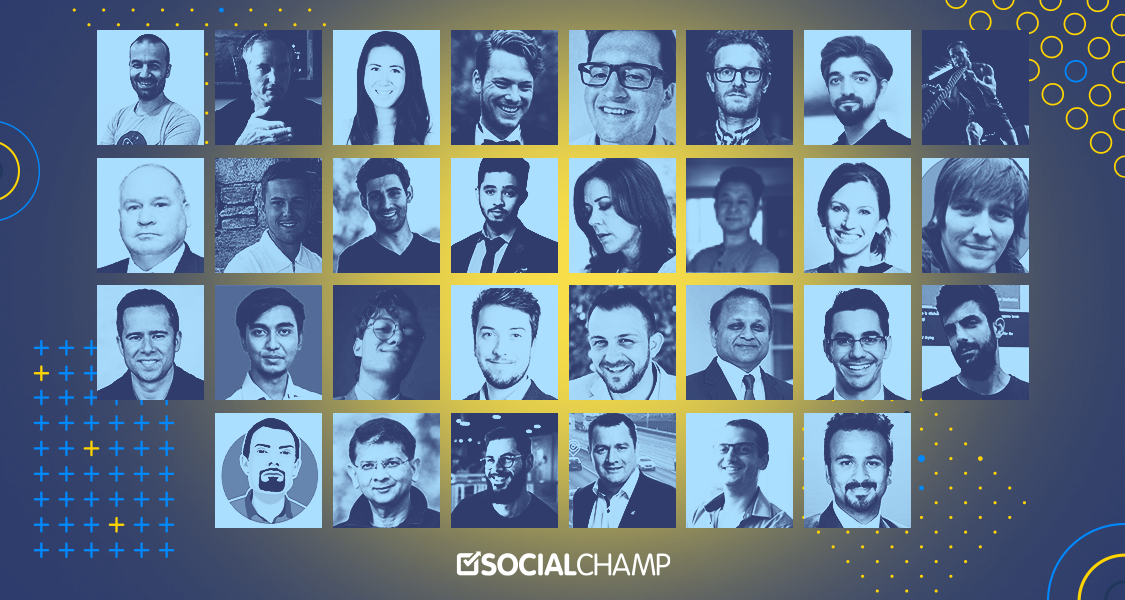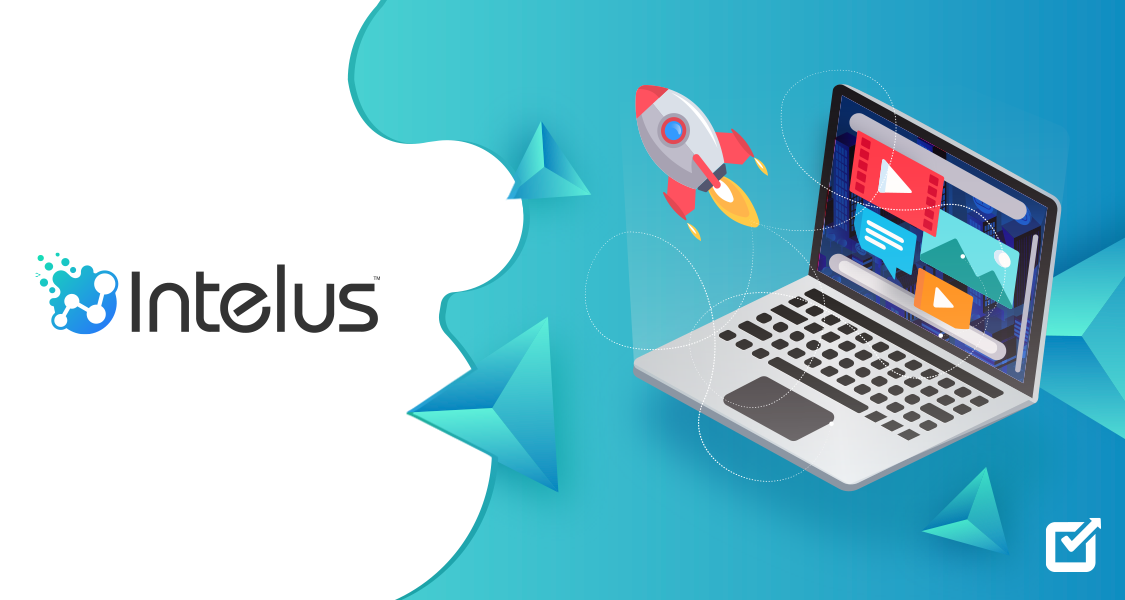Martech or Marketing Technology is an exponentially growing industry that is quickly adapting artificially intelligent tools to suit its needs. AI is fast becoming the go to for a lot of monotonous marketing tasks like editing, proofing, writing, designing and so on.
Curious about the future of the industry and its skilled labor, we asked a lot of marketing professionals and experts what they think about AI’s influence on the Martech Industry.
Listed below are those unfiltered thoughts curated for your viewing pleasure. Enjoy!
Industry Experts on How AI is Influencing the Martech Industry
Faruk Durak
Founder, MonitUp


AI is revolutionizing the Martech industry, enabling marketers to make better decisions, optimize campaigns, and enhance customer experiences.
With AI-powered tools, marketers can now analyze vast amounts of data, predict customer behavior, and personalize marketing messages, resulting in higher engagement rates and increased ROI.
AI is also improving the efficiency and accuracy of ad targeting, reducing wasteful spending, and improving ad relevance for consumers.
——————–
Kent Lewis
Senior Partner & CMO, Deksia
Despite early challenges, ChatGPT is and will continue to be a game-changer for businesses. There are seven primary benefits to using ChatGPT to inform, optimize and measure the impact of your sales, marketing and client management efforts. ChatGPT can help expedite and improve the quality of research across disciplines.
It can also enhance content creation, website optimization, data analysis and reporting, content personalization, improving customer service and process automation. The SmartBrief article below provides more detail into effective strategies and best practices to level up marketing via ChatGPT, which we’ve already started doing and plan to continue expand on, moving forward:
7 ways ChatGPT can level up your marketing
——————–
Lilian Chen
Co-Founder and COO, Bar None Games
As a Co-Founder and COO of Bar None Games, a high-growth startup, I’m well-versed in the world of entrepreneurship, venture capital, operations, sales, and marketing. I’m passionate about the role AI is playing in the marketing space and I’m excited to share my thoughts on the subject with Social Champ’s audience.
AI has revolutionized the way that businesses approach marketing. AI-driven analytics help marketers understand customer behavior and make data-driven decisions. AI-powered tools automate mundane tasks and free up time for marketers to focus on more creative and strategic tasks. And AI-enabled chatbots help marketers provide personalized customer service and build
relationships with customers.
AI is an invaluable asset for businesses, but it’s important to remember that it’s only as effective as the people who use it. AI technology is evolving rapidly, and marketers need to stay up to date on the latest trends and developments to make the most of it. Ultimately, AI is a
powerful tool, but it’s the humans behind it that make it truly effective.
——————–
Kenny Kline
President & Financial Lead, BarBend
According to my knowledge, augmented reality (AR) and virtual reality (VR) have existed for some time, and while a very small (but
growing) percentage of customers have experienced the technologies, those who have had a pleasant experience. According to Forbes, 30% of consumers claim they would never visit a clothes store again if AR enabled them to safely purchase the correct size garments. IKEA was an early adopter of so-called mixed reality in 2013.
Their augmented reality mobile app allows users to view virtual furniture as if it were in their home room. Expect mixed reality to become increasingly prevalent in 2020. AR and VR will not just be used by early adopters like IKEA to attract consumers. Apps utilising mixed reality will become ubiquitous.
——————–
Robert Zeglinski
Managing Editor & Researcher, BreakingMuscle
I would argue that AI has had a substantial impact on how we search and the quality of our search experiences. As previously stated, Google pioneered the use of AI in search with the introduction of RankBrain in 2015. In an effort to make searches more intelligent, Amazon has followed in Google’s footsteps.
AI has aided in innovating and enriching search results with the
introduction of natural language processing (NLP) and semantic search, which have included smart options such as autocorrect, assisting users in locating products they can’t identify and providing links between products and similar items for a wide variety.
——————–
Edward Mellet
Director, WikiJob
The evidence suggests With the rise of digital media as a tool for both advertising and customer relationship management, the function of Content Marketing has shifted substantially in recent years. With so much information to sort through, it’s becoming increasingly necessary to rely on technology to help target specific groups with relevant material and tailor communications to each individual. As a result of these shifts, marketers must now not only analyze and create massive amounts of sophisticated data but also craft content that will captivate audiences and generate revenue.
This new trend is being fueled by the automation of previously labor-intensive processes like content production, analysis, optimization,
and reporting, made possible by advances in machine learning, NLP, and AI at many companies. Automating marketing processes has been around for quite some time, and it has helped increase efficiency, production, and insight. Due to the massive amount of content, it must process, however, it is becoming more difficult to deliver its full potential.
Recent developments in natural language processing (NLP) are increasing the efficacy of automation by expanding its ability to process unstructured data (such as that found in emails or social media posts), grasp the semantics (the meaning) of information, and provide better personalization. Based on this strategy, Marketing Automation may now go far beyond conventional lead scoring and nurturing methods. The next major thing for Marketers will be to take advantage of these nuanced interactions to provide a completely customized experience for each consumer, such as speedily addressing their questions or resolving their concerns.
——————–
Adam Fard
Founder & Head Of Design, Adam Fard UX Agency
Prompt people to share, like, and comment
According to my observation, most marketers have had the idea, Wow, it would be so much easier if I could just tell my computer what to say, while conversing with a consumer. We can achieve it thanks to artificial intelligence and natural language processing. Conversational AI has been making waves in our day-to-day lives through everything from chatbots to voice assistants and everything in between. It exists to make attending, troubleshooting, and quick problem-solving approaches easier!
The term *customer attendee* is sometimes used to describe *chatbots*, although that is just the tip of the iceberg. Modern chatbots can replicate human responses in a way that makes them look so natural that clients don’t realize they are conversing with a machine. The most underestimated feature that marketers overlook is that sophisticated chatbots may also lead customers down a path that ends in a purchase. The marketing sector will be significantly impacted by it because it is the future.
——————–
Tom Miller
Chief Marketing Officer, FitnessVolt
In my opinion, AI Marketing, whose major concentration is on media, offers comprehensive analysis in the areas of media selection and media purchase. This study comprises audience analysis, bid and cost management, settings for conversion, media purchasing, and investment analysis.
AI spans a wide variety of marketing channels and media, including search platforms like Google, all major email programmes such as Apple Mail, Gmail, Outlook, and others, and social media channels such as Facebook, LinkedIn, Instagram, and Twitter, among many more.
In order to enhance the customer experience, many media sources employ AI algorithms to analyse the aspects that influence it.
The Google AI platform determines a company’s search engine ranking, whilst the tools accessible on social media platforms assess the relevance and consumer reach of a company’s content. Google Analytics’ plethora of analytics monitors makes it easy to track each website visitor, as well as the possibilities and conversions that follow from these interactions.
——————–
Timothy Allen
Sr. Corporate Investigator, Corporate Investigation Consulting
I think properly executed email marketing can have amazing results. It is, in my opinion, one of the most successful ways to connect with the target audience compared to other marketing strategies. A tailored email is 55% more effective than any other social media channel for contacting clients, according to statistics. Brands will soon have the benefit of *AI *sending each of their clients tailored emails based on their prior encounters with their goods and services. You did really hear correctly!
I believe AI has transformed the way we personalize consumer experiences, and it’s no wonder that it has influenced the Martech business. AI can assess customer behavior, preferences, and patterns using complex algorithms and machine learning, allowing marketers to personalize their content and campaigns for individual customers. This, in turn, leads to higher rates of engagement, more sales, and stronger customer loyalty.
As voice assistants like Amazon Alexa and Google Home grow in popularity, voice search optimization is becoming an increasingly important component of Martech. Solutions powered by artificial intelligence can evaluate voice queries from clients, figure out what they are looking for, and optimize content based on that. This, I think, helps businesses make sure that their content is easy for customers to find and use through voice search.
——————–
Jake Smith
Managing Director, Absolute Reg
Chatbots and virtual assistants are gaining popularity in the Martech business because they provide an easy and cost-effective way to communicate with clients. Chatbots enabled by AI can answer customer inquiries, offer personalized recommendations, and even assist customers in making purchases. I feel this not only enhances consumer satisfaction but also saves organizations time and resources.
I believe that lead creation is a crucial function of Martech, and that AI has made this process more efficient and productive than ever before. Businesses may identify the most promising leads and focus their resources on nurturing these leads by employing AI-powered lead scoring systems. This not only increases the efficiency of the lead-generating process but also results in higher conversion rates and a more significant ROI.
——————–
Matthew Magnante
Content Strategist, FitnessVolt
Connected Analytics
That is what I would call a platform that integrates a variety of different marketing tools into a single service. While marketing clouds
offer a unified perspective of customers, which enables organizations to design individualized, multi-channel journeys, they represent the future of MarTech. If modern marketers do not integrate, they may anticipate falling more and further behind their competitors.
In the end, cloud marketing solutions provide a solution to the primary challenges that modern marketers continue to face. These challenges include the complexity of today’s MarTech stacks, the total cost of ownership, the bandwidth of marketers, and the pressures that are placed on marketers, as well as the requirement for marketing analysis and performance information.
Cloud marketing addresses complexity on all fronts and decreases it. Businesses no longer need to find the dozens of relevant vendors in the field and link technologies together since cloud marketing does this for them. The cloud marketing method typically results in a lower total cost of ownership for marketing teams rather than the alternative of purchasing several solutions.
——————–
Abdul Saboor
Full Stack Developer, The Stock Dork
In my opinion, headless technology is used when the content creation and production processes are separated on the front-end and back-end through the use of application programming interfaces (APIs). The headless content management systems act as a repository for all of the content, and it is anticipated that the demand for flexibility will continue to grow in order to better harness the content and improve the digital consumer experience.
Enterprises will find this to be attractive since it is open to integration and is designed to be remixed across both existing consumer channels and new consumer channels. This can range from channel-focused to composable
API-native platforms. Real-time data integration and activation within consumer data platforms will be a focus of the investment this time around. Data will continue to be a red-hot trend for the foreseeable future.
——————–
Gene Fitzgerald
Head of Marketing, BOS
Customer Experiences
That is what I would say. Once upon a time, customers who required any form of support from a company did so by dialling the company’s phone number. These days, the vast majority of contacts with customers take place online, via mediums such as business websites, support chats, email, and social media platforms. Customers in the modern era have come to anticipate a fluid and problem-free interaction with their preferred businesses, irrespective of the medium in which it takes place, be it Facebook, SMS, voice, or something else.
Martech products that are powered by AI make it possible for your company to provide an overall client experience that is simplified and hassle-free. Because of this, there will be a greater level of involvement from customers, which will, of course, result in improved customer retention.
According to Korte of TetraVX, it goes like this: The demand from customers for speedier service across an increasing number of digital channels has presented a challenge to the teams working in contact centres. This has forced team leaders to find solutions for problems such as lengthy wait times, cumbersome customer journeys, and overworked agents.
——————–
William Drow
Product Manager, Starlinkhow
Artificial intelligence (AI) is playing an increasingly significant role in the martech sector, transforming how marketers plan, evaluate, and
promotional campaigns. With AI technologies like natural language processing (NLP), computer vision, data modeling, and machine learning, marketers may automate formerly manual operations. AI may be used to ease the process of dividing client data based on many factors. With AI algorithms, marketers can exploit this data to create more successful tailored consumer experiences. For instance, AI-driven customization engines may instantly discover customer preferences, such as their preferred product lines and media channels.
In addition, sophisticated AI-powered marketing automation solutions may be leveraged to optimize content delivery timings depending on clients’ device use habits or time zone. Marketers are rapidly adopting AI-powered analytics solutions, which enable them to rapidly make sense of massive datasets and create novel insights that were not attainable with old methodologies. With these facts at their disposal, marketers can assess the efficacy of their efforts with more precision than at any time and alter their plans appropriately.
Lastly, bots are gaining popularity among marketers since they enable them to communicate with clients on a large scale in a tailored way while decreasing their own workload. These bots employ natural language processing and powerful computer learning algorithms to comprehend consumer requests and offer the most relevant responses. This capacity enables much faster customer service replies, which increases customer loyalty and satisfaction over time.
Therefore, it is evident that AI has the ability to completely alter the martech business by enhancing the efficacy and efficiency of marketing efforts and opening up new possibilities for the customization and optimization of campaigns.
——————–
Michael Hess
eCommerce Strategy Lead, Code Signing Store
There are two main ways in which AI helps organizations today. Having AI assist you with certain tasks can be a HUGE time saver. What this means is that you can’t make sound decisions without some sort of program that can analyze data and spot patterns. On the other hand, there are occasions when businesses will use AI to get things done faster.
There, automatic systems become useful. Email marketing, lead creation, and performance may all be automated with the use of AI automation solutions. By eliminating the need
for humans to do routine operations, automation increases productivity and returns on investment. Automation powered by AI also improves teamwork. Artificial intelligence (AI)-powered automation, for instance, can be applied to project management systems to reduce the time spent by a manager or administrator on process organization.
——————–
Steve Rose
Vice President, MoneyTransfers
In other words, AI can help you do better work. Artificial intelligence (AI)-driven algorithms will gain more sway in businesses, empowering marketing departments to make more informed judgments. For instance, programmatic purchasing will let AI technologies make the most informed ad purchases possible through the use of complex algorithms. Why? The AI examines massive amounts of information that are impossible for humans to comprehend.
However, AI can make these decisions in milliseconds, far outpacing human marketers due to the speed at which it processes data. Tools powered by artificial intelligence will aid in strategic decision-making at the enterprise level, bringing together market intelligence with operational data.
It’s exemplified wonderfully by Concured. Nowadays, Concured’s AI-powered tools assist marketing teams in selecting the most appropriate keywords and keyword phrases, as well as
conducting in-depth analyses of the industry to establish the most pertinent themes on which to write each day.
In addition, businesses can benefit from better campaign planning in the coming months thanks to predictive analytics powered by AI. Based on historical data, the AI is able to predict which themes will prove most successful several months in advance.
——————–
Jonathan Faccone
Managing Member & Founder, Halo Homebuyers
There are already a lot of ways to use facial recognition technology, like unlocking phones and tagging pictures, but this AI-powered technology has a huge amount of potential. Researchers have found that using software to read people’s emotions from their faces has helped them improve their prototypes.
But how exactly will this cutting-edge innovation change advertising? If you could read what people were thinking when they saw an ad, you’d have a gold mine of information at your fingertips.
Is there a way to leverage this information to tailor your brand’s message to each individual customer’s preferences? As of 2023, these ideas will finally be
made available to marketing departments; however, they will have previously existed only in the realm of theory.
——————–
Yasin Arafat
Founder & CEO, DOPPCALL
It’s critical for organizations to stay ahead of the curve and leverage the power of this technology to produce greater outcomes as AI continues to change the marketing environment. But, it’s crucial to keep in mind that AI cannot replace human creativity and knowledge; rather, it must be used in conjunction with them. The brands that succeed in the coming years will be those that successfully combine AI with human ingenuity.
According to me, AI has the ability to completely transform the marketing sector by enabling more individualized, effective, and targeted campaigns. But, it’s critical to approach AI with a strategic attitude and be aware of its constraints and dangers.
Understanding your target demographic, producing great content, and forging genuine connections with your clients are still the keys to marketing success. Brands can develop genuinely effective campaigns that appeal with their audience and spur business
success by fusing the creativity and empathy of humans with the power of AI.
——————–
Abdellah Azzouzi
Founder, AI Voice Detector
AI is revolutionizing the Martech industry by enabling businesses to improve customer engagement and personalize their marketing strategies. One of the key areas where AI is making an impact is voice-enabled interfaces. With the growing popularity of voice assistants like Amazon’s Alexa, Google Assistant, and Apple’s Siri, businesses are incorporating voice-enabled interfaces into their marketing strategies to enhance customer experiences and drive engagement.
AI-powered voice assistants can interact with customers in a conversational manner, providing personalized recommendations, answering questions, and performing tasks. By analyzing data from previous interactions, AI can also anticipate customer needs and preferences, allowing businesses to tailor their marketing messages to individual customers.
AI is also transforming the way businesses analyze and use customer data. With advanced algorithms and machine learning techniques, AI can analyze vast amounts of data to identify patterns, preferences, and behaviors, providing businesses with valuable insights into their customers’ needs and desires. This enables businesses to create targeted marketing campaigns that resonate with their audience and improve customer engagement.
In addition, AI is helping businesses automate their marketing processes, freeing up time and resources to focus on more strategic tasks. By automating tasks such as lead scoring, email marketing, and social media posting, businesses can improve efficiency and accuracy while reducing costs.
Overall, AI is transforming the Martech industry by enabling businesses to create more personalized, targeted, and engaging marketing strategies. With the growing popularity of voice-enabled interfaces, businesses that incorporate AI-powered voice assistants into their marketing strategies can enhance customer experiences and drive engagement, leading to improved customer loyalty and business growth.
——————–
John Hargan
Founder & Director, Velocity
Digital advertisers started to see the effects of AI before it broke out with the release of ChatGPT. Google and Meta’s (Facebook/Instagram) ad algorithms have been becoming increasingly effective, and are able to find new customers with incredible efficiency, hinting that this technology would soon find applications beyond serving ads.
As AI becomes more mainstream, and accepted, we’re starting to see agencies deploy generative AI tools like Jasper and ChatGPT into their copywriting processes. While these tools don’t always create A+ copy, they can act as a starting point or help copywriters get past their writing block.
When it comes to reporting we’re seeing that data analysis can be performed far more efficiently by AI-powered analytics products than by analysts. While on the design-front, there are a slew of AI ad creative generators appearing on the market, it’s only a matter of time before these image generators catch up and start to rival actual designers.
Overall, this shift is unnerving, as many didn’t expect AI tools to become so effective so quickly, however it should be nothing to be afraid of. AI brings the promise of less time spent on rote, time-intensive tasks, and more opportunity to focus on building a unique marketing strategy. The future is uncertain, but exciting.
——————–
Alex Alexakis
Founder & CEO, PixelChefs
Personalization frequently targets B2C initiatives with customized advertisements, emails, or promotions. Personalization, though, is just as significant to B2B clients. AI directly influences the consumer journey through personalization. After all, only with a lot of information to support them can personalized experiences be developed.
Personalization enhances the customer journey by simplifying the lead’s progress toward a conversion. AI, for instance, dynamically enables the tracking of client profiles and their interactions with multiple companies. Based on their past actions, it then creates a path map of the type of marketing engagement to send next. It can also track data from third parties.
Let’s say a targeted online advertisement brings a lead to your website. They read a blog post of yours. After downloading a report about your product, they are persuaded to input their email before leaving your website. AI personalizes your subsequent engagement with that customer based on this data. You can send them a personalized email based on what they like to read. Their business email additionally details the sector in which their company operates and expected trouble issues, making it much more helpful.
——————–
Sanjay Gupta
Brand Owner, Santa Medical
AI-powered solutions can help martech workers better their marketing tactics, boost productivity, and provide more individualised consumer experiences.
AI-driven Martech solutions are able to evaluate client information to produce individualised marketing campaigns that are catered to the needs, preferences, and requirements of the customer.
AI can scan enormous volumes of data and find trends. Martech experts may make educated decisions about their marketing strategies by using AI to predict future trends and customer behaviours using predictive analytics. AI-powered chatbots can also assist customers and interact with them, giving them tailored advice and support.
AI can also examine sales pipeline data and offer insights into potential revenue trends, assisting Martech employees in making fact-based decisions. Marketing activities like email marketing, social media marketing, and ad targeting can be automated by AI, freeing up Martech specialists to concentrate on more strategic efforts.
——————–
David Bitton
Co-Founder & CMO, DoorLoop
AI can assist marketers in *real-time campaign optimization based on consumer behavior and critical success factors.* AI can streamline the real-time optimization of marketing efforts by adapting the positioning, presentation, and promotions in response to current data. For instance, AI can automatically update the targeting and content of a campaign if it needs to be done more effectively.
This enables marketers to make quick modifications and increase campaign results. AI algorithms may also examine competitor pricing information and real-time customer activity to suggest the best rates for goods and services. This can assist marketers in remaining competitive and maximizing earnings.
In general, *artificial intelligence is assisting marketers in being more efficient, successful, and customer-centric in their approaches to MarTech.* Marketers may enhance campaign performance and increase ROI by utilizing AI for real-time monitoring and optimization.
It can do so by analyzing massive amounts of data, providing personalized marketing communications and promotional materials, automating optimization, and suggesting appropriate prices. We’ll see even more cutting-edge uses of AI in the MarTech sector in the future as technology advances.
——————–
Oliver Goodwin
Founder & CEO, Synthesys
Artificial Intelligence is having a major impact on the martech industry and transforming how businesses engage with their customers. AI-driven solutions can help marketers gain insights by analyzing customer data, automate tedious tasks, detect patterns in consumer behavior, generate personalized content, optimize campaigns for better ROI and manage customer relationships efficiently.
AI also enables marketers to quickly identify new opportunities and develop strategies that are more effective at reaching target audiences. By combining data from multiple sources and leveraging machine learning algorithms, AI helps marketers make better decisions faster and keep up with changing consumer needs. In short, AI is creating an entirely new way for businesses to interact with customers – one that promises improved engagement rates and higher ROI than ever before.
——————–
John Ward
Chief Operations Officer, Mold Busters
As a COO in a small local company, I believe that AI is playing an increasingly important role in marketing. With the rise of big data and
social media, it’s becoming more challenging for small businesses to reach their target audience effectively. AI can help level the playing field by providing valuable insights and automating tasks that were previously time-consuming.
One area where AI is particularly beneficial for small businesses is in social media marketing. AI-powered tools can analyze social media data to help businesses identify trends, understand their audience better, and create more effective social media strategies. AI can also help automate social media tasks, such as scheduling posts and responding to messages, freeing up time for small business owners to focus on other aspects of their business.
However, it’s important to note that AI is not a silver bullet for all marketing challenges, at least from my recent experience. It’s essential
for small businesses to balance the use of AI with human creativity and insight to create campaigns that resonate with their target audience. Small businesses must also be mindful of data privacy and security concerns when using AI-powered tools.
In summary, AI can be a valuable asset for small businesses looking to improve their marketing efforts. By leveraging AI-powered tools, small businesses can gain insights into their audience and automate time-consuming tasks, allowing them to focus on growing their business. However, it’s important to use AI in conjunction with human insight to create effective marketing campaigns that align with the business’s goals and values.
——————–
Beerud Sheth
CEO, GupShup

Activities with heavy dependence on language, conversations and communications will be transformed by Large Language Models like ChatGPT. Industries like journalism, content marketing, copywriting, customer support, legal, education, entertainment, chatbot development, and many others will be disrupted by this technology.
Activities that use language within standard guidelines can easily be done by AI. For example, AI is already capable of writing high-quality articles that report on sporting or financial events. Even in media/publishing, blog posts that explain standard products or use-cases can be well written by AI.
The natural limits of AI:
The tools are great, but they have limitations that the industry is still working on fixing. The tools are generative in nature i.e., they will make up a coherent, plausible answer, even if it’s inaccurate. Insiders jokingly refer to these current models as very good BSers. Therefore, they have to be used carefully. When used to give answers or advise humans, they have to be fine-tuned, i.e., trained with precise facts, before being deployed in live situations.
——————–
Carlos Barros
Director of Marketing, Epos

As a Director of Marketing at Epos Now, I’ve seen first-hand how AI is revolutionizing the Martech industry. AI has brought forth new
transformative solutions that allow marketing teams to gain powerful insights into their customer data, craft highly-targeted campaigns, and optimize the entire customer experience.
AI technology enables marketers to segment audiences more efficiently by quickly analysing vast amounts of data points. This allows us to target specific groups with high levels of accuracy and adjust our strategies according to their behaviour in order to provide them with tailored content. Additionally, predictive analytics helps marketers stay ahead in terms of anticipating customer needs and responding effectively to potential opportunities ahead of competitors.
Furthermore, using AI-driven technology can improve marketing automation processes by enabling us to create multi-channel content faster than ever before while ensuring consistency across multiple platforms. It also allows for greater scalability as we can leverage our existing resources like budget or team size instead of needing extra investments when trying out new ideas or strategies.
All this combined leads to reduced costs and higher ROI which makes it easier for any company operating within the martech industry – whether as a supplier or consumer – to succeed in an increasingly competitive market. There’s no doubt that AI technologies are transforming the martech space for the better!
——————–
Simon Murray
Co-Founder, CameraMatics

From customer insights to content production and dissemination, AI is truly ingesting every aspect of marketing. With its capacity to analyze enormous volumes of data and spot patterns and trends, AI is revolutionizing the way marketers approach client engagement and enabling new levels of efficacy and efficiency.
With the use of consumer insights, marketers are better able to comprehend their target market and develop more specialized and individualized experiences. When creating content, AI-powered solutions can evaluate data to find the most efficient keywords and phrases, assisting marketers in producing more persuasive content.
AI-powered ad platforms can analyze data to determine the optimal times and channels to reach particular audiences to ensure that marketing messages are sent to the appropriate audiences at the appropriate time. AI is influencing every aspect of marketing, bringing forth new heights of efficacy and efficiency.
Our business uses AI to create more individualized and effective marketing experiences for our clients, enabling them to stay
ahead of the curve. In the coming years, artificial intelligence will, in our opinion, continue to be a vital innovation engine in the marketing
sector.
——————–
Dimitar Stoyanov
Principal Consultant, Know & Connect

Right now, everyone’s focus is on generative AI and its implications for the creative side in advertising and marketing. But over the long haul, AI is bound to make an equally big impact on MarTech. This should tell forward-thinking MarTech professionals two things.
First, marketing technologists will be tasked to integrate more and more of generative AI APIs into the tools and platforms that their clients — marketers — are using. Having text or image generation capabilities within DAMs, CMPs, CMSs, and CRMs will soon be the norm. So will knowing how to leverage and support them. We should all get familiar with the technical documentation and playgrounds of OpenAI, Cohere, and the likes.
Second, AI will become better and better at coming up with formulas, writing source code, and integrating systems — at first for simple use cases, but soon after for complex, sophisticated ones previously reserved to teams of seasoned technologists. It’s a good time to get comfortable with ChatGPT and GitHub Copilot, and to become as good in engineering prompts and fine-tuning AI models as one is at engineering. There will always be a need for technical thought and systems thinking, but the value of basic technical skills will gradually decline.
——————–
Rahul Vij
CEO, WebSpero Solutions

I can attest to the significant impact that AI is having on the martech industry. AI is transforming the way we approach marketing, providing new opportunities for personalization, automation, and optimization.
One of the most significant ways AI is influencing martech is through its ability to analyze vast amounts of data quickly and accurately. With the use of AI-powered analytics tools, we can identify patterns and trends that we would not have been able to detect using traditional methods. This data analysis allows us to develop more targeted and effective marketing campaigns, resulting in higher conversion rates and improved ROI.
Another way AI is changing the martech landscape is through automation. With AI-powered chatbots, for example, we can provide 24/7 customer support, answering common questions and resolving issues in real-time. This level of automation not only improves customer satisfaction but also frees up time for our marketing teams to focus on more strategic initiatives.
Personalization is also becoming more prevalent with the use of AI in martech. AI algorithms can analyze user behavior and preferences to deliver personalized content and recommendations, improving the user experience and increasing engagement.
Finally, AI is enabling us to optimize our marketing campaigns continuously. By analyzing performance data in real-time, we can make
data-driven decisions and adjust our strategies on the fly, improving our chances of success.
Overall, AI is having a transformative impact on the martech industry, enabling us to work smarter, faster, and more efficiently. As a digital marketing agency, we are embracing these new technologies and are excited to see what the future holds as AI continues to evolve and improve.












































